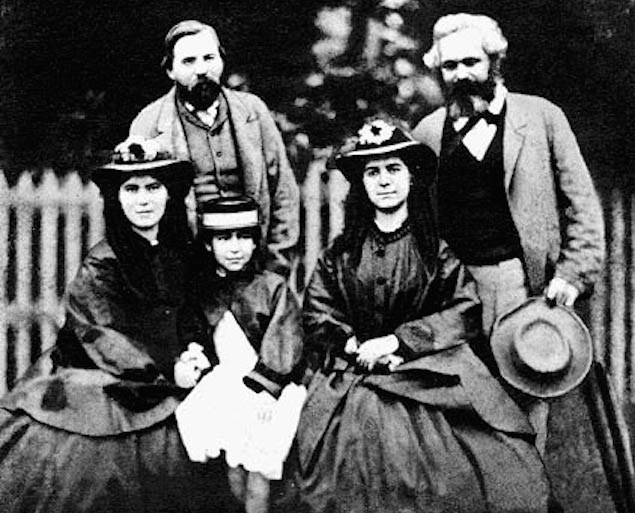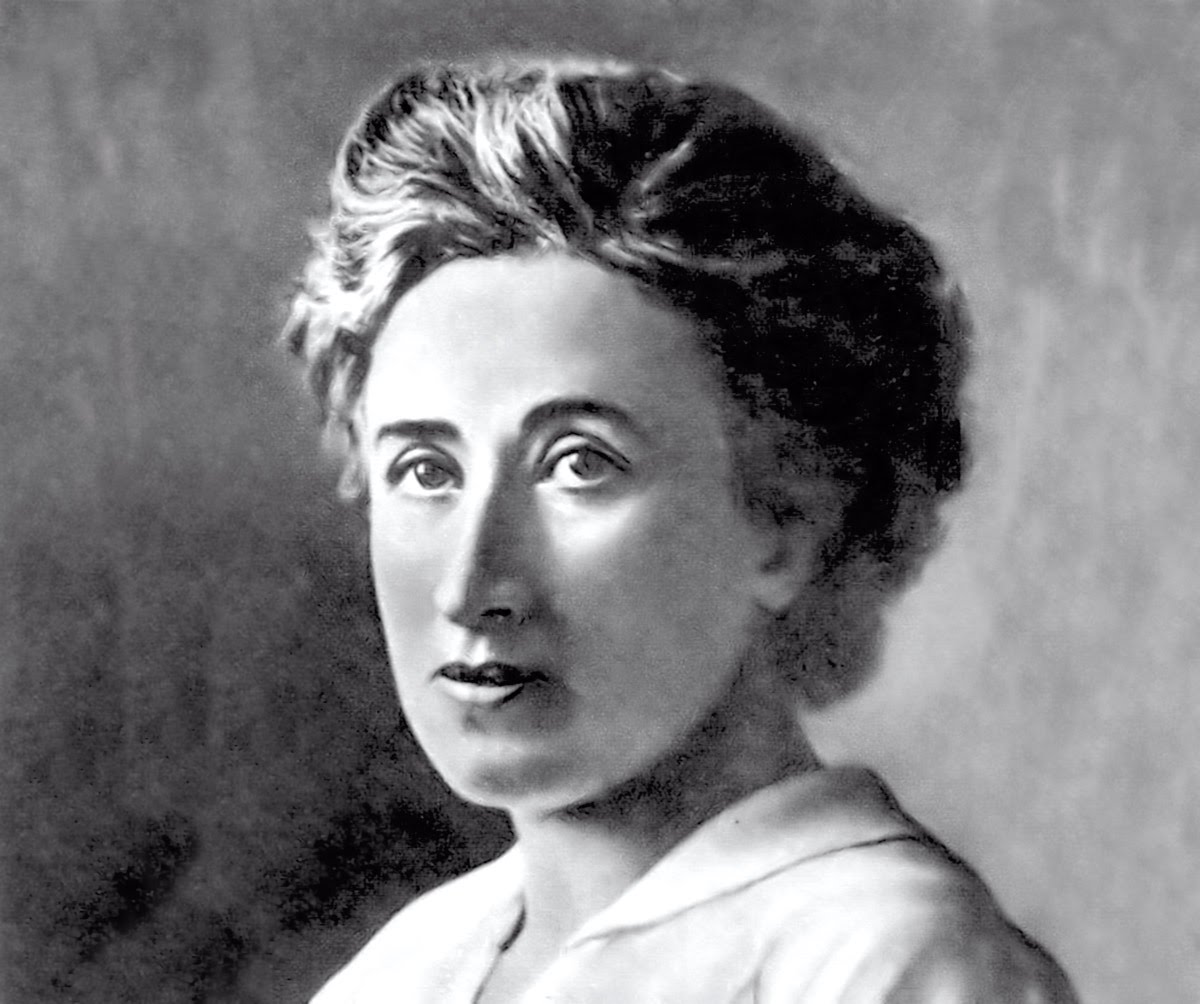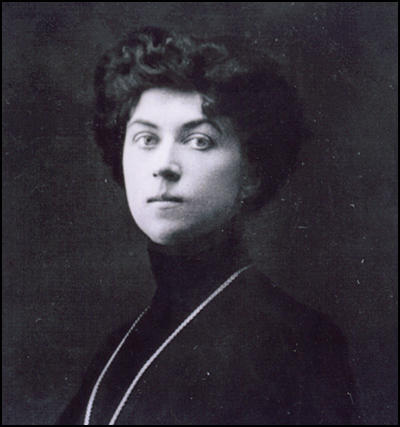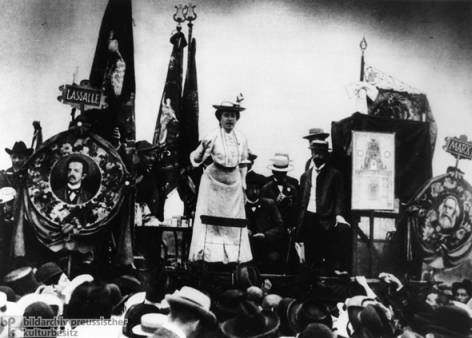by Parson Young
語言:
English
INTERNATIONAL Women’s Day, now celebrated all over the world and adopted by the United Nations, has a Marxist origin. Originally, the labor movement in the United States and the Socialist Party of America started the holiday. It was first called the International Working Women’s Day, and its inaugural celebration was organized by Clara Zetkin, a prominent German Marxist and later a member of the Communist Party of Germany, on March 19th, 1911. The liberation of women from oppression under capitalist society has always been one of the top priorities of the Marxist revolutionary program, and past revolutionary struggles sent shock waves throughout the world, which substantially contributed to the progression of women’s rights across the globe. Women not only assumed indispensable roles throughout the Marxist revolutionary struggles, they also played foundational roles in the development of Marxism as a philosophy as well. It is only too appropriate to pay tribute to the role women have played in the history of Marxism.
Jenny Marx and the Marx Sisters
WOMEN’S ROLE in developing Marxism can be traced all the way back to the Marxism’s inception, with its namesake Karl Marx. It is widely acknowledged that Marx and Engels were the primary architects of Marxism. What is very little known, however, is the enormous role Marx’s wife, Jenny Marx, played in the crafting the philosophy itself.
Mary Gabriel’s Love and Capital is an excellent biographical account of the Marx family based on assiduous evidence-based research. In it, Gabriel illustrates the volatile and poverty-stricken lives that Jenny and Karl Marx lived as life-long revolutionaries, out of which the ideas of Marxism were conceived and refined. Marx considered Jenny as an intellectual peer. He often discussed and reviewed the ideas that he had in mind with her, and in turn Jenny would provide vital suggestions and feedbacks. She was also one of the very few people in the world who could understand Marx’s notoriously inscrutable handwriting, and transcribed much of Marx’s manuscripts before they were sent to the printers. She also played a central administrative role in organizing and coordinating the First International, a revolutionary organization that spanned across Europe and North America that was under frequent persecution from the authorities. On top of all the intellectual and revolutionary works, she also had to raise seven children, as well as raise finances for the debt-ridden Marx family. It is difficult to overstate Jenny’s role in the development of Marxism, and it would be a grave injustice to not raise her contributes.
 Karl Marx and his daughters, along with Friedrich Engels in the background
Karl Marx and his daughters, along with Friedrich Engels in the background
The couple’s daughters would go on to become significant figures in the socialist movement themselves. Eleanor Marx was an avid trade union activist, especially in the Women’s Trade Union League. She also edited several seminal lectures given by Marx such as “Value, Price, and Profit”, and “Wage Labour and Capital”, as well as the majority of English translation of Marx’s works. Jenny “Jennychen” Marx, named after her mother, would become a socialist journalist involved in the struggle of Irish Fenian revolutionaries against brutal English rule. Laura Marx would go on to become active in the French and Spanish socialist movements, and was a major translator of Marx’s works into French.
The integral influence of women on Marxism did not stop there; rather it would thrive with socialism, as it became a major political movement towards the late 19th century, when Social Democracy became a large transnational force.
Rosa Luxemburg
IT IS IMPOSSIBLE to speak of Marxism in the early 20th century without mentioning Rosa Luxemburg. Her authority both as a revolutionary and as a theoretician remains indisputable to all who consider themselves Marxists. She developed Marxism with seminal works such as Reform or Revolution, The Accumulation of Capital, and engaged in a vital and involved debate with Lenin on the National question. As a revolutionary leader, she was a powerhouse in the German Social Democratic Party (SPD) as well as the Second or Socialist International, always remaining an unwavering champion of a revolutionary Marxist program and standing against the party’s degeneration into reformism. When the SPD was overtaken by opportunist leadership and capitulated into supporting the First World War, Luxemberg, Zetkin, Liebknecht, and other revolutionaries left the party to found the Spartacus League and later the Communist Party of Germany, well before its Stalinization.

Rosa Luxemburg
Luxemburg’s revolutionary activity led to her leadership of the German Revolution in 1919, which if it had succeeded, would have vastly transformed the trajectory of world development. Yet a combination of lack of resources and the betrayal of the SPD led the revolution to a violent defeat. Luxemberg was captured by proto-fascist thugs known as the Friedkorps under sponsorship of SPD leader Friedrich Ebert, and was brutally beaten and martyred shortly after her capture.
Luxemberg’s ideas, like her indomitable revolutionary spirit, remains robust and vivid to this day. Her works are considered must-reads for anyone who is interested in learning about Marxist philosophy and economics, and her writings and thoughts remain primary interests of study for Marxist scholars. Marxism would not be what it is today without Rosa Luxemberg.
Women in Revolutions
IF WE LOOK back on the important victories of revolutionary struggles in recent history, we would again find that they could not have been achieved without the involvement of women.
As a clear example, the celebration of the International Working Women’s day in Russia of 1917 led to a militant protest against the Tsarist government by a large group of women, who swiftly went into the factories and led out over 50,000 workers into the street to protest draconian food rationing instituted by the monarchy. This movement was immediately supported nationwide and later led to the overthrow of the Tsarist regime itself. This historic episode, led by women, is known as the February Revolution.
Later in the same year, the world would be shook by the establishment of the very first worker’s state in human history through the October Revolution. Female Bolsheviks such as Alexandra Kollontai and Nadezhda Krupskaya played a pivotal role in the Bolshevik leadership.
 Hsieh Hsueh-hung
Hsieh Hsueh-hung
In subsequent revolutionary struggles around the world, we repeatedly saw talented women taking charge. We in Taiwan have our very own example of a female revolutionary leader: Hsieh Hsueh-hung (謝雪紅). She organized the Taiwanese Communist Party to fight against Japanese imperialism side by side with the Chinese and Japanese communists during Japan’s colonization of Taiwan. After World War II, she led an armed revolutionary struggle against the Allied-sponsored occupation of KMT forces shortly after the eruption of the February 28th Massacre.
While material circumstances and errors led her to later join the Stalinized Chinese Communist Party, she nevertheless opposed Mao’s Chinese nationalism in its policy towards Taiwan. Her understanding of the National Question of Taiwan was grounded in the correct analysis that the historical productive relations in Taiwanese and Chinese society have diverged due to different experiences of colonialism and therefore developed different national consciousness, to which a Leninist analysis on the National question would understand and provide a policy of granting full right of self-determination in order to lift the veil of national oppression and allow the working class to see the true kernel of class struggle behind it.
Hsieh upheld this analysis during her leadership of the Taiwanese Communist Party, and though she capitulated to the Chinese Communist Party’s (CCP) policy of unification when she joined the CCP in Hong Kong, she still maintained that Taiwan should to be granted full autonomy after unification throughout her life. Hsieh would later be identified as a “Right-winger” and a class enemy during the Cultural Revolution, and was subjected to repeated public crucifixion, until her death from lung cancer in the hallway of a hospital in Beijing. While there is much debate about the various choices she made throughout her life, her legacy in Taiwan is indisputable: a Communist woman led the first armed resistance against Chiang Kai-shek from within Taiwan.
Women’s Rights and Global Marxist Movements
IT IS IMPORTANT to note the enormously progressive role that Marxism played in the advancement of women’s rights. The Soviet Union before Stalin was the first government in Europe to legalize divorce and abortion upon request, with the latter considered a basic component of women’s healthcare and therefore made free. To put the matter in perspective, it took the United States 56 more years until limited right of abortion was granted to women through a constitutional debate of Roe v. Wade in 1973, and it is still under considerable threat of being taken away to this day. Universal suffrage was also granted in the Soviet Union three years before it was introduced in the US. Finally, the Soviet Union was also the first government in human history to legalize homosexuality, at a time when most other countries treated same-sex relations as criminal offenses.
 Alexandra Kollontai
Alexandra Kollontai
While the Bolsheviks stood firmly for the absolute equality of men and women in terms of their rights as members of the party, they were far from the “equity feminists” of today who pretends to think that all historical material oppression of women would vanish into thin air the second a new decree is established, and therefore women should not be given more resource in their struggle to overcome the legacy of sexism in capitalist society. Far from it, the Bolsheviks firmly understood that the task of emancipation of women should be tasked to a leadership made of women. This led to the formation of the Zhenotdel, led by Alexandra Kollontai and Inessa Armand, which was in charge of devising policies towards improvement of women’s conditions as well as implementation of illiteracy reduction, equal work for equal pay, and educating women on the new laws and encourage participation in politics. During this time, the proportion of women’s participation in politics and access to higher education, as well as public healthcare services provided to women, grew considerably.
Unfortunately, the Stalinist bureaucracy would go on to reverse all of these policies and shut down the Zhenotdel.
Conclusion
AFTER THE early part of the 20th century, the real force of Marxism was doubly suppressed by Stalinists and Capitalist political forces for a long period of time, until today when there is a renewed interest in the ideas of socialism from the masses, as well as the tangible elevation of class struggle across the world as we approach the enormous crisis ahead of us.
Of course, in the interim, we still saw women assuming leadership roles in radical movements around the world, out of which progress for women were substantially made as well.
 Rosa Luxemburg giving a speech in 1907
Rosa Luxemburg giving a speech in 1907
It should be made clear that although Marxists stand 100% in support of real proportional participation in public affairs and should lead society in dismantling the historical social apparatus that oppress women, we reject the idea that simply electing women into office in bourgeois society can make real progress for the emancipation of women in general. A class analysis is indispensable in understanding this issue. There is an overabundance of evidence showing female bourgeois leaders such as Margaret Thatcher or Hillary Clinton have done nothing for the progress of working class women’s rights in general, at best only benefiting the interests of women of the bourgeois background. In order to truly step towards the elimination of oppression against women, we must overturn a social configuration that necessitates the domination of one class against another. In Taiwan, we might ask the same questions with the upcoming presidency of Tsai Ing-Wen.
As today’s global capitalism approaches into another historic crisis, revolutionary movements around the world are also bubbling under the surface, and will surely erupt in the foreseeable future. While the success of revolution is far from guaranteed, it is plain that only with the active, proportional involvement of women in the leadership and would the revolution have a chance to succeed.


 Karl Marx and his daughters, along with Friedrich Engels in the background
Karl Marx and his daughters, along with Friedrich Engels in the background Hsieh Hsueh-hung
Hsieh Hsueh-hung Alexandra Kollontai
Alexandra Kollontai Rosa Luxemburg giving a speech in 1907
Rosa Luxemburg giving a speech in 1907